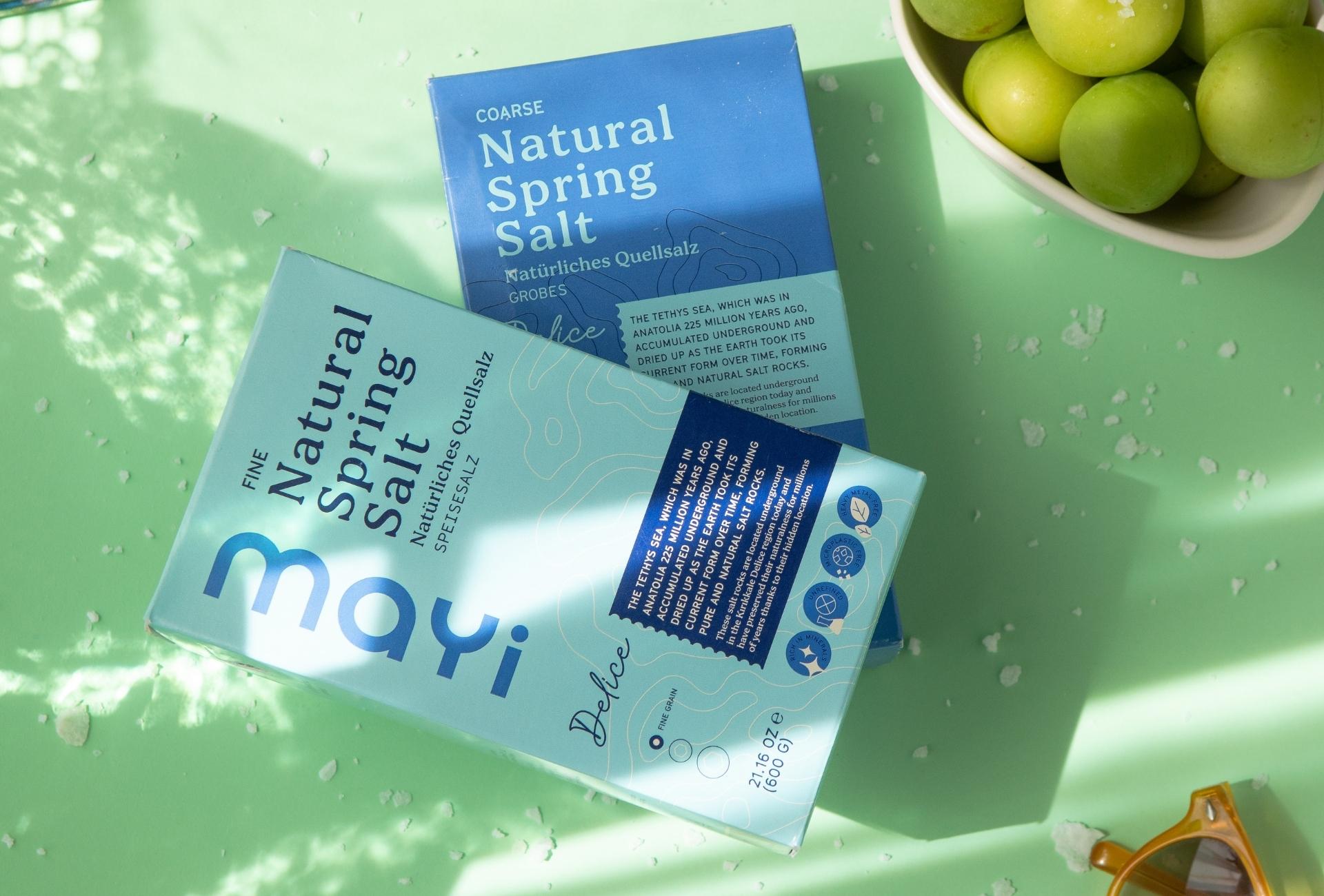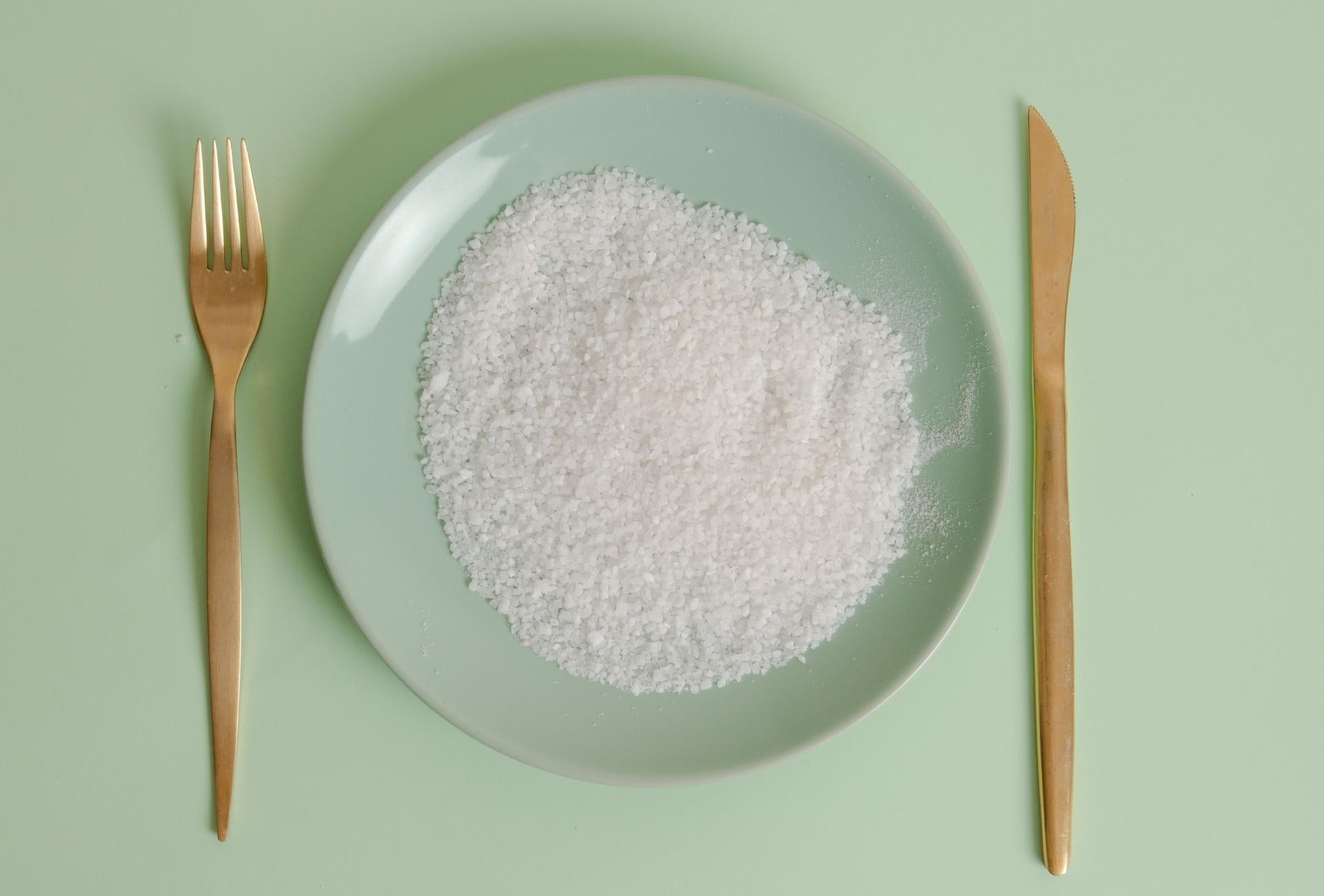There are many types of salt found around the world. We can give examples such as spring salt, Himalayan salt, sea salt, and Persian blue salt. In this article, we will get to know Persian blue salt more closely. Persian blue salt is obtained from salt beds in the mountainous regions of eastern Iran. It's quite rare globally and possesses unique characteristics compared to other salts. The reason for its blue color is attributed to minerals and elements like calcium, potassium, and iron present within it.
While its appearance differs from other salts, its taste is generally similar to them. It's often preferred for its decorative appearance.
What Persian Salt Blue is Made of?
Persian rock Blue Salt is a unique type of salt distinguished by its blue hue. The distinctive blue color of this salt comes from the presence of sylvinite, a type of salt that contains traces of potassium chloride and other minerals. It is rich in minerals such as calcium carbonate, sodium chloride, and potassium. Sylvinite forms through a combination of millions of years of natural compression and crystallization processes. This unique mineral composition gives it its characteristic appearance and imparts a slightly different taste compared to regular salts.
Is Blue Salt Natural?
Blue sea salt is obtained through the natural evaporation of seawater. Persian Blue Colored Salt creates an impression of being an artificial salt due to its unique color. However, this is a misconception. Persian blue diamond salt is a natural type of salt.
Persian Blue Salt is obtained from salt beds in the eastern region of Iran. Its blue hue is naturally derived from its composition.
Is Blue Salt Good for You?
All naturally occurring salts contain the element sodium chloride. Blue persian sea salt also contains sodium chloride within it. Therefore, it's advisable to consume this salt with caution and in moderation. While it does offer health benefits due to its mineral content, there isn't clear scientific research specifically outlining the health benefits of Persian Blue Salt. Hence, it's recommended to use this salt in moderation. It's advisable to consult your doctor before using Persian Blue Salt.
Is Persian Blue Salt Healthy?
This rare and visually striking salt is obtained from the Semnan region of Iran. It contains a significantly higher amount of minerals compared to regular salts, including trace minerals like calcium, potassium, magnesium, and iron.
Despite sparking curiosity about potential health benefits, there isn't sufficient scientific evidence supporting its specific advantages. Therefore, it's important to consume it cautiously and avoid excessive intake.
Some health professionals argue that Persian Blue Salt's rich mineral composition and antioxidant properties could contribute to health benefits. Antioxidants reduce oxidative stress in the body, minimizing cellular damage. However, there's no research confirming this claim.
Balanced use of these exotic salts is advisable to maintain a healthy approach.
Persian Blue Salt Benefits
Some people believe that Persian blue salt has its benefits. Certainly, its mineral content holds health benefits. Among the most well-known advantages are:
- Some research has shown that Persian blue salt has lower sodium content compared to regular table salt. Low sodium intake can be highly beneficial for individuals trying to control blood pressure.
- Certain studies suggest that Persian blue salt has alkalizing effects on the body. This implies that the salt helps balance pH levels and potentially reduces acid reflux or other acidity-related issues.
- Persian blue crystal sea salt contains various minerals such as potassium, calcium, iron, and magnesium. These minerals are crucial in supporting bone health, muscle function, and maintaining electrolyte balance.
What is the blue coarse salt used for?
This salt, which is labor-intensive to produce and rare to find, is primarily used for decorative purposes on dining tables. Its taste is almost similar to other salts.
Additionally, it's favored for spa and wellness purposes, particularly in baths and body scrubs. Its natural mineral content and unique blue color also make it a choice for those who believe in its potential for mental relaxation and spiritual calmness.
Blue Salt for Cooking
Persian rock salt blue raises questions about its suitability for use in cooking due to its blue color. Blue salt for cooking is known for its unique flavor profile and mineral composition.
Chefs often prefer using blue salt for cooking due to its subtle yet distinct taste it imparts to dishes. While it's often employed for its decorative appearance, the visual impact is also a significant factor. Despite having a taste similar to other salts, moderate consumption is recommended.
Where to Buy Persian Blue Salt
Blue Persian Rock Salt, being a rare and scarcely produced salt, can generally be found in specialty kitchen stores, gourmet or organic product markets, or online platforms.




